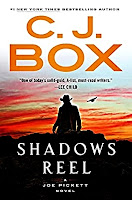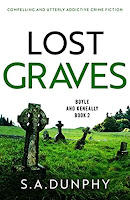First Sentence: It’s after the lunch rush, and the man at the window
orders a Sam’s Special, large fries, and a chocolate shake, a pretty standard
request.
Henry Meloux, an ancient Ojibway healer, has had visions of his own death. Dolores Morriseau has come to Henry for solace and advice. Cork O’Connor’s wife, and Henry’s niece, Rainy, agree to assist Henry and Dolores. All is well until three men, one of whom tricked Cork into leading them to Henry’s, show up intent on killing Dolores. The only choice Henry has is to lead the two women into the woods and head for the Boundary Waters to keep the three of them safe. Anton Morriseau, Dolores’ brother-in-law, hunter, and cop with the Leech Lake Tribal Police, arrives and proves to Cork the man claiming to be related to Dolores is an imposter. He and Cork head off to find Henry, Dolores, and Rainy, not knowing the danger they will all be in.
There is a prologue, but it works, providing the perspective of one of the principal characters. The story is told in present tense from three points of view with the transitions indicated by the chapter heading. This prevents any confusion on the part of the reader.
Krueger has created an excellent ensemble of characters in Cork, Rainy, and Henry. Cork’s son, Stephen, and Rainy’s nephew, Daniel, also play a significant role. However, none of them are perfect and Cork’s realization of a failure is one that can be felt and understood.
One can’t help but admire Henry’s philosophy toward death—“He understands his death is an experience neither to fear nor to welcome. It is simply a place toward which he has been walking since the moment of his birth.” I was also taken by Henry always referring to the Native Indians as “The People,” which conveys dignity and rightfulness. There are no weak characters here, all the supporting characters are significant to the story and well-defined.
What is particularly interesting about this book is the character LaLoup, the tracker hired by the villain, and witnessing the change he undergoes as the story unfolds. This is a character one hopes may return in future books.
There is a mysterious message saying “Kill
Catie” which adds to the complexity of the plot. It’s not unusual to have a
story focused on the hunted and the hunters. Krueger takes it one step
further by adding another layer, and then the weather on top of it all, making
it particularly exciting. Kruger’s writing is visual due to his strong sense of
place, and ability to convey emotions. Any time both the protagonists and
the villains are up against a deadline, the tension and suspense are
heightened. In this case, each side knows they will experience serious
consequences if they fail.
Krueger is a wonderful writer and reading the Author Notes is strongly recommended. Although this book can be read as a standalone, reading the entire series is a special treat.
FOX CREEK is an excellent and exciting read. This is not a book one will put down and come back to later. The theme is timely and important. The characters are excellent. In a review by John Purcell, he noted—"Cork is the center, but Henry is the heart.” I couldn’t have put it better. The ending is reassuring, but only if we pay attention. There are some good lessons to be learned.
FOX CREEK (PI- Cork O’Connor-Boundary Waters,
MN-Contemp)
William Kent Krueger – 19th
in series
Atria
Books, Aug 2022, 400 pp.
RATING: Ex / A+




























